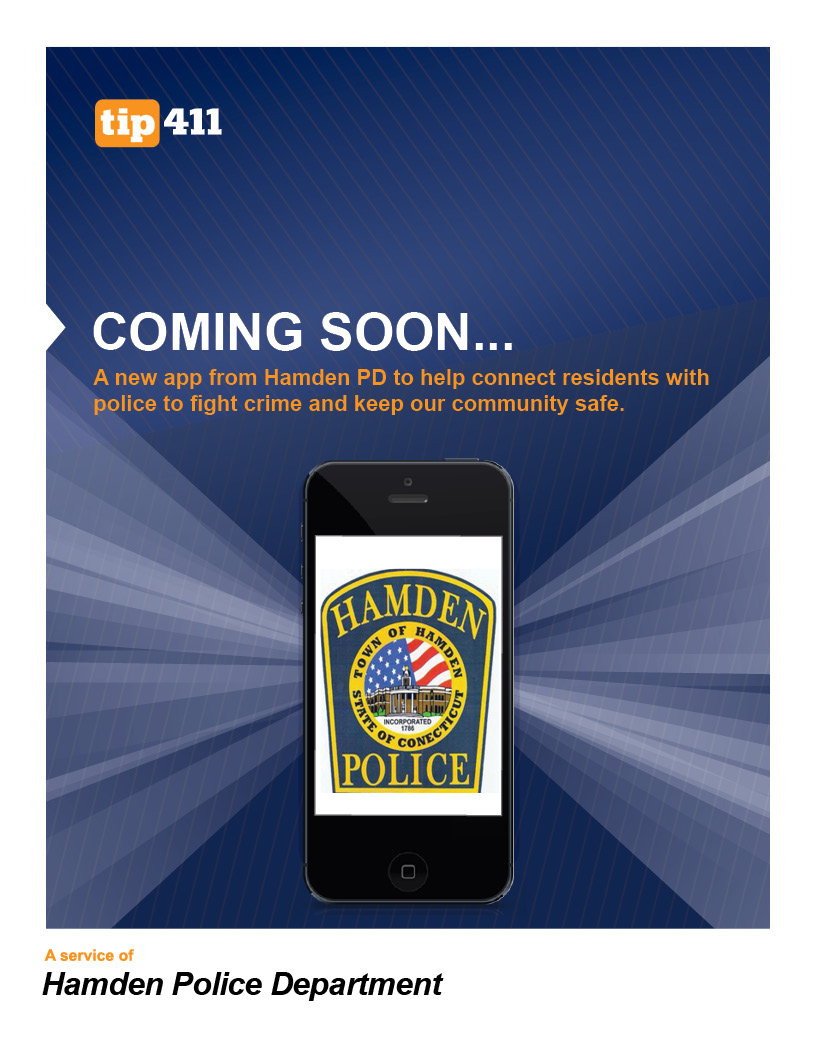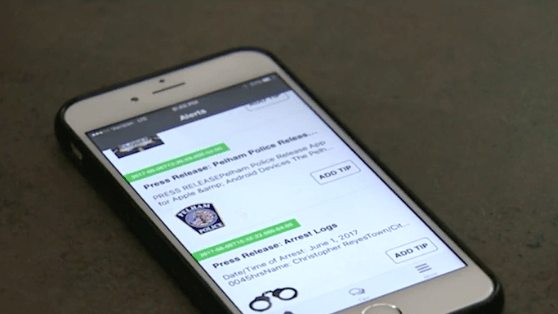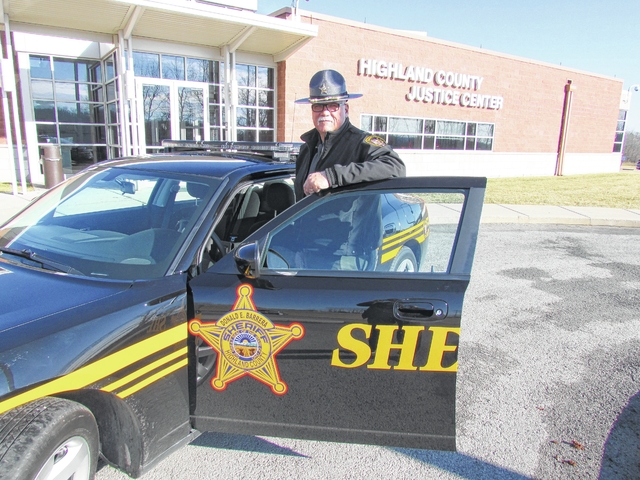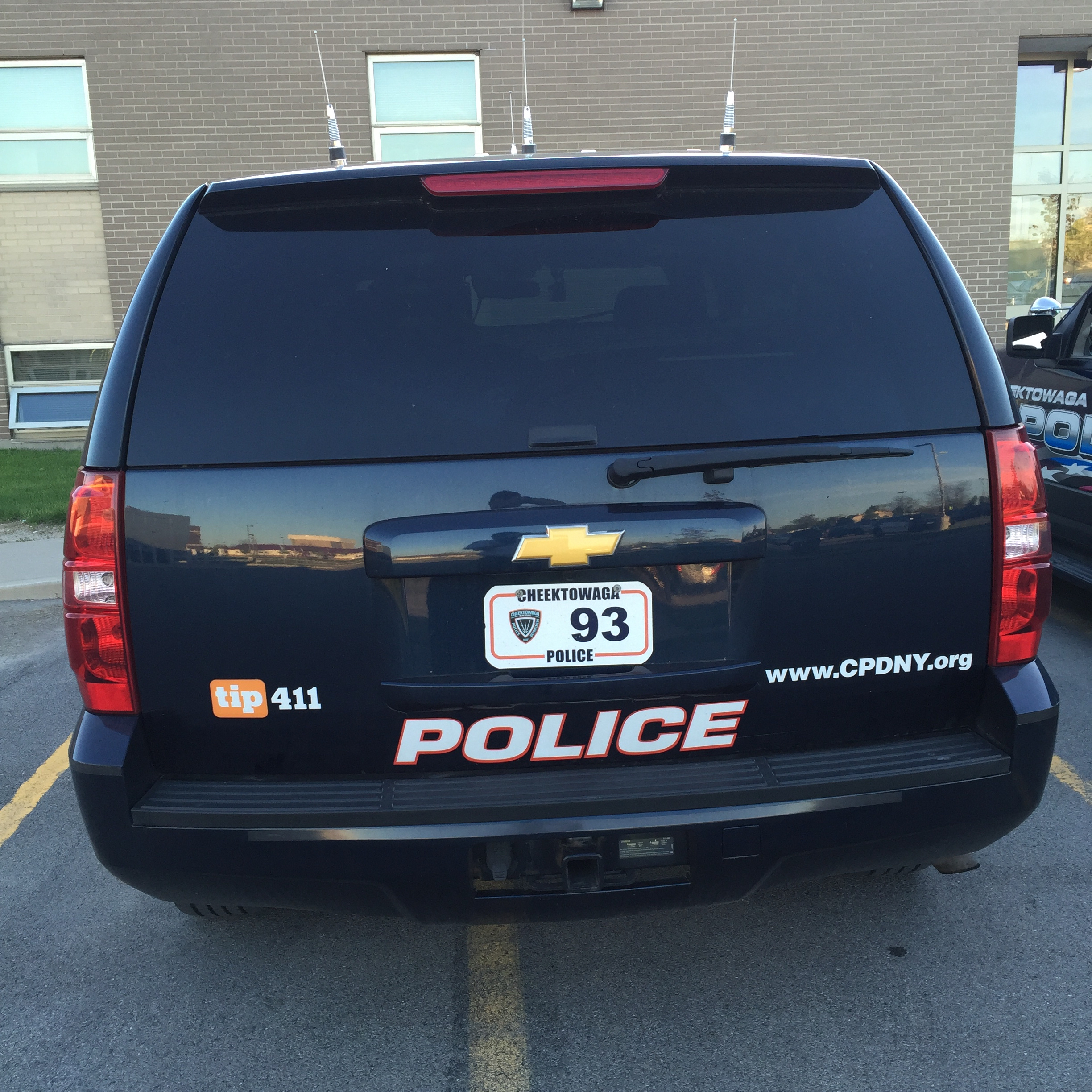New ‘tip411’ app to let the public help Hamden police anonymously
A new smartphone app will let town residents be part of the police force, allowing allow anyone who downloads it to send anonymous tips and get alerts about crime in the community. The Legislative Council this week approved funds for… Read More »New ‘tip411’ app to let the public help Hamden police anonymously




